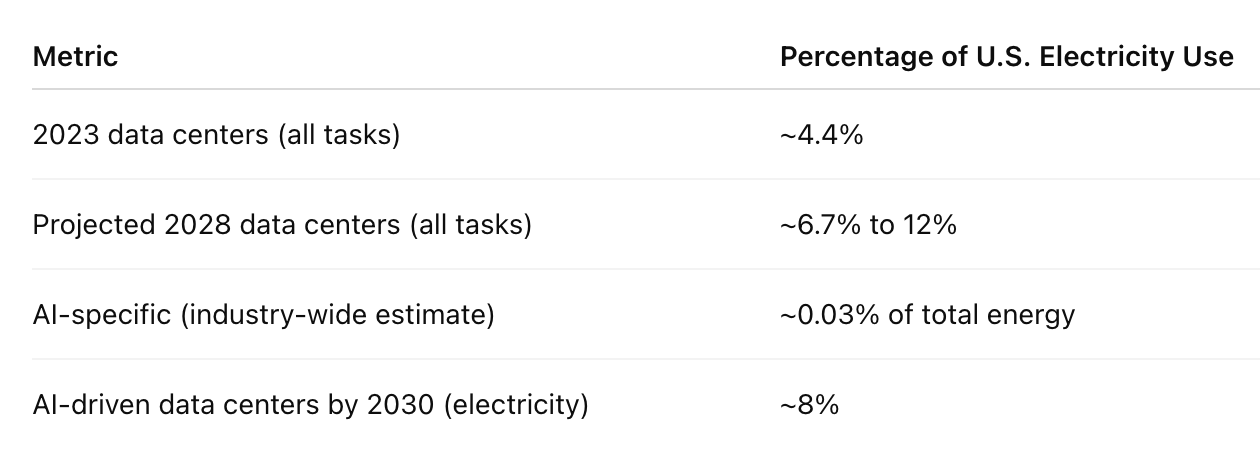Aside 1.1: Energy and AI
How can you support using something that gobbles up so much electricity and water?
A Big Question
In response to Episode 1.0, a reader asked me this:
“As someone who is concerned about global warming, how can you support using something that gobbles up so much electricity and water?”
That’s a fantastic question — one that really deserves more than a quick comment.
If I were feeling completely optimistic, I might start with journalist Megan J. McArdle’s TED Talk: What do we lose when we try to stop change?. She argues that resisting technological progress in order to protect the present could end up stealing opportunity from future generations.
But of course, the story is more nuanced than just optimism. AI does have a real energy footprint — and it’s growing. To give us all a “stake in the ground” for what we know today, here are some current estimates:
So while AI’s share is still relatively small in isolation, it’s on track to grow quickly — especially as new models are trained and deployed.
I’ll circle back to this question in future episodes, because I think it’s too important not to keep revisiting.
For now, I’d love to hear your thoughts: How do you weigh the environmental costs of a new technology against the creative and social possibilities it opens?



This could be the perfect storm we have been looking for.
The self preserving impetus of the AI may be able to find a solution to the depletion of resources that threaten the planet.
Someone needs to get an AI working on fusion or zero point as soon as possible, damn the torpedoes, full speed ahead!
( I have thrown the debate gauntlet, discuss amongst yourselves)